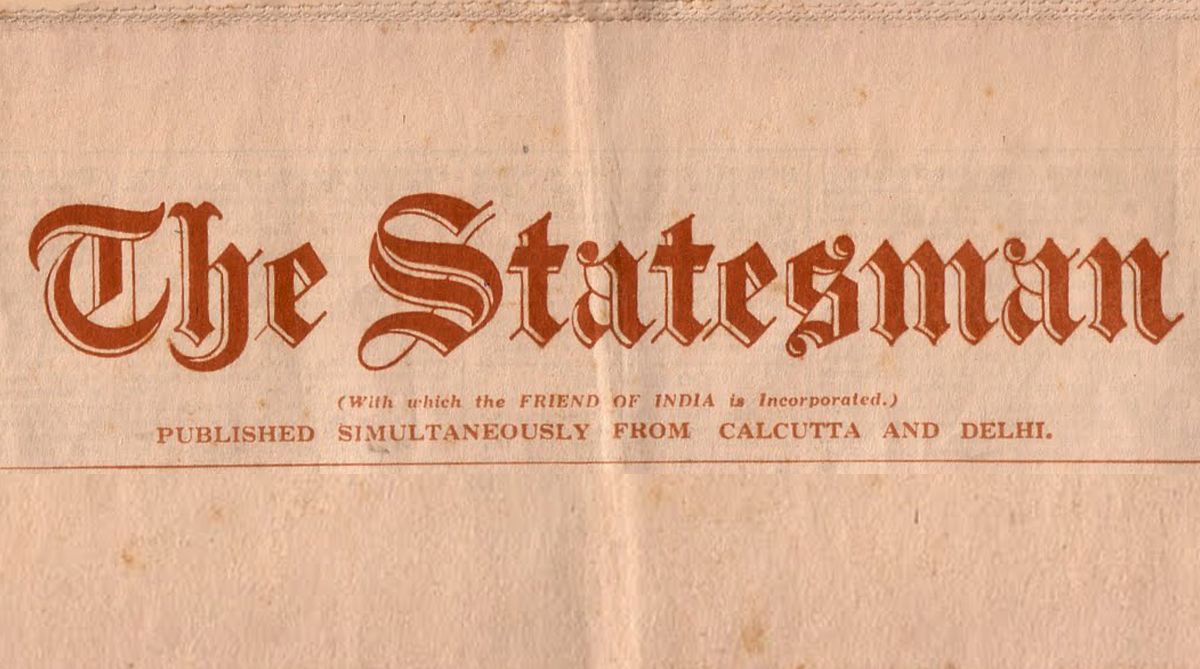A New Day, A New Dawn
There is a surprise for the readers. A special Poila Boishakh gift from none other than West Bengal chief minister Mamata Banerjee. Who has written a piece for this special edition.
On this day a century ago, these were some of the news items The Statesman readers got to read about India and the world.

OCCASIONAL NOTE
The topsy-turvy notions current in this country regarding the status conferred by the passing of a university matriculation examination were seldom better illustrated than in the United Provinces Legislative Council on Tuesday, when an honourable pundit moved that the franchise committee to be appointed in connection with the Montagu reforms should be directed to consider the matriculation examination as an “independent and sufficient qualification” for a vote.
The matriculation examination is a test of fitness to commence university studies – not to finish them, and still less to exercise the political franchise. An honourable member stated that there were Madras University matriculates of the age of twelve.
Advertisement
In Europe, where no candidate under the age of sixteen would be admitted to such an examination, the qualification admired by the honourable pundit is possessed by thousands of school misses still wearing their hair in pigtails.
The vote, even for university members – who are themselves generally regarded by their fellow members of Parliament as a species of exotic – is generally reserved for M.A.’s, who can rarely, if ever, be less than twenty-five years of age, except in some of the newer non-residential universities.
If India is to be led straight into a fearful debacle the honourable pundit has discovered the way to achieve that desideratum – but even Mr. Montagu, intent though he is on the faith that is in him, would stop short, it may be hoped, of so extreme a step.
REVOLUTIONARY POLITICS IN SCHOOLS
With regard to the Sessions Judge’s strictures on the Lucknow Church Mission School in the course of his judgment in the political murder trial regarding revolutionary propaganda in the school, the headmaster of Lucknow Church Mission School explains the difficulties in the way of taking effective steps to prevent revolutionary politics in schools.
The headmaster says, in reference to his own school, that students whose guardians live in the city are required to sign admission forms in the presence of the headmaster.
Those, however, who live out of the city cannot obviously be got to do this. Admission forms are in such cases sent to them by post. When a form comes back signed it is not possible to find out if the signature has been forged unless some extraordinary circumstance arises to cause doubt of the entries in the form and lead the headmaster to institute enquiries on the subject.
The headmaster also says that postal letters addressed to the boys cannot under ordinary circumstances be opened and scrutinised by the headmaster to prevent students from being turned into “postboxes” of the kind mentioned in the judgment.
COOLIE STRIKES IN RANGOON
The coolie strike at the wharves has again broken out, and though many men have resumed work a large number are still out. A complaint was made to the Police of intimidation of those who are willing to work at the rate of Re 1-4 per day and some men have been arrested.
So far as the British India Steam Navigation Co. is concerned the rate of Re 1-4 has been accepted. Other employers, however, find that the coolies who are believed to be urged on by outside influences will not resume work, and the trade of the port is to some extent hindered.
THE IMPROVEMENT IN SHIPBUILDING
It has been suggested that a considerable improvement in the railway situation in India is imminent owing to the satisfactory progress of shipbuilding in the United Kingdom and in the United States of America, which, it is anticipated, will afford increased tonnage to India, and hence among other things permit of the transport of coal from Calcutta to the west coast by boat, so relieving the strain on the railway systems.
It is, of course, well known that there has been a large expansion of shipbuilding both at home and in the United States, but it is a mere assumption to suppose that the shipping position has been so improved as to permit of any considerable diversion of shipping to Indian waters to such an extent as to allow of the transport of coal in any quantity from Bengal to the west coast.
CONCEALMENT OF ENEMY ASSETS
Before the Chief Judge counsel for Anton F. Mathol, a Dutch subject, continued this argument against the sentence of three months’ rigorous imprisonment passed on Mathol by the District Magistrate, Rangoon, for concealment of enemy assets.
Counsel urged very strongly that the point previously decided against him by Mr. Justice Ormond should be referred to a bench, but the Chief Judge declined as it would amount to sitting over Mr. Justice Ormond’s decision. After a lengthy argument the Chief Judge said he would pass orders.
Advertisement